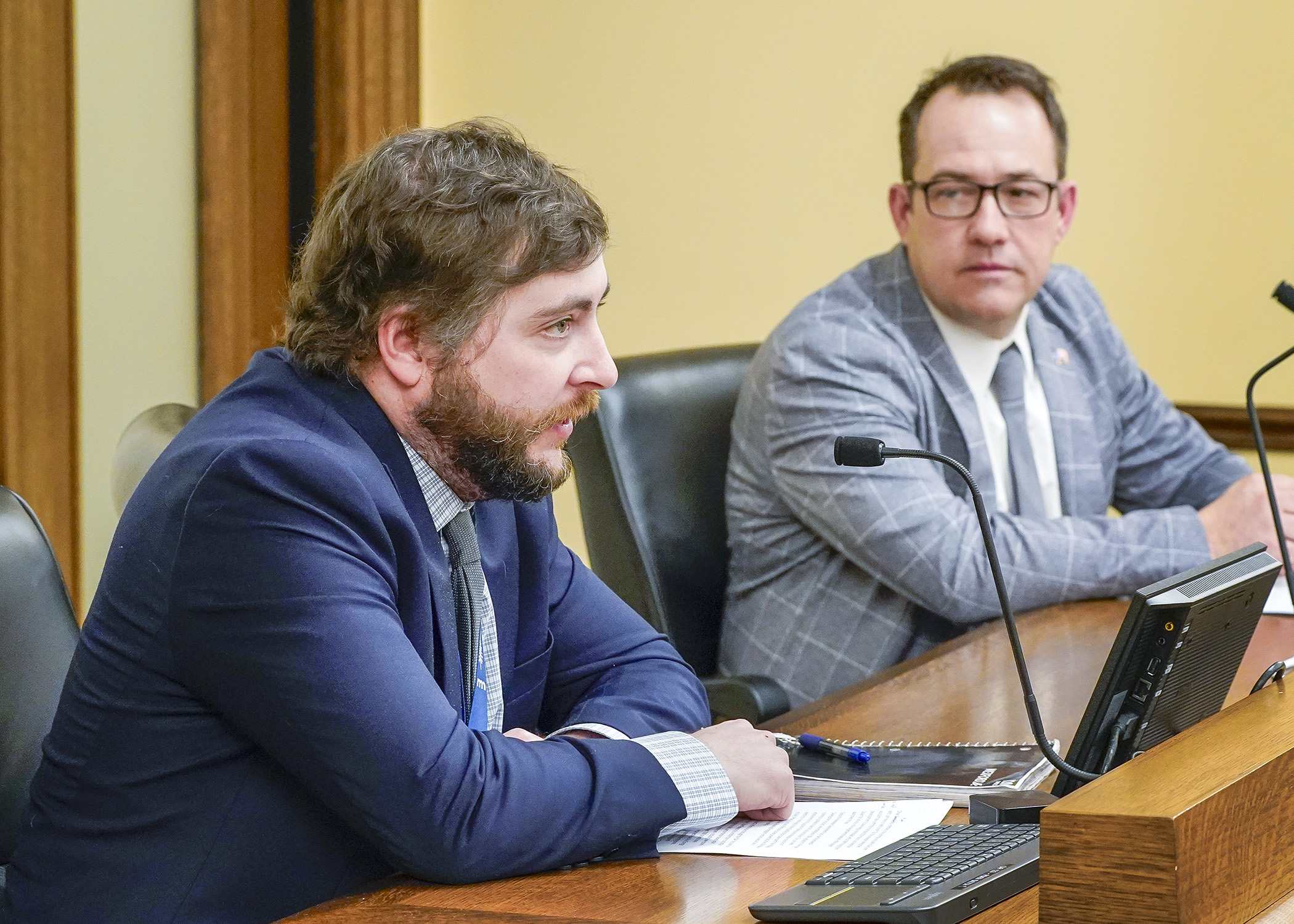Divided House energy panel OKs measure to eliminate renewable energy fund

Lest you think that the move toward renewable energy in Minnesota has been funded by your tax dollars, you should know that, since 1994, most of the programs, subsidies, rebates and incentives in that area have been financed by a separate fund.
It’s called the Renewable Development Account, and it was created as part of an agreement that allowed Xcel Energy to build a nuclear waste storage facility adjacent to its nuclear generating plant at Prairie Island. Xcel is statutorily required to make annual contributions to the account for each cask of nuclear waste stored at Prairie Island and the Monticello nuclear plant.
Xcel’s annual contribution to the account is currently about $30 million.
But that could go away.
Rep. Chris Swedzinski (R-Ghent) sponsors HF1738, which would eliminate the Renewable Development Account, as well as funding for Xcel’s Solar Rewards program, community energy transition grants and solar grant programs for public buildings.
The bill was approved by the House Energy Finance and Policy Committee on an 8-7 party-line vote Tuesday and sent to the House Ways and Means Committee.
“HF1738 is primarily focused on driving the cost of electricity down,” Swedzinski said. “We don’t need to press our thumb on the scale to determine which projects happen and which projects don’t. Minnesota ratepayers deserve to use their money as they best see fit. And it’s time for the Legislature to get out of the way.”
At one time, the account was used to fund renewable energy research and development grants, but, since 2017, it’s been a state fund from which the Legislature makes direct appropriations to support a wide range of renewable energy activities, including:
- the Prairie Island net zero project;
- hydropower in Granite Falls;
- community energy transition grants;
- the Solar for Schools program;
- a University of St. Thomas microgrid project;
- a Mountain Iron solar project;
- clean energy career training;
- an energy conservation loan program;
- a construction materials environmental impact study;
- electric vehicle rebates;
- electric school bus grants;
- electric panel upgrade grants;
- energy storage incentive grants;
- a grant for an anaerobic digester for Ramsey and Washington counties; and
- a carbon pipeline study.
Rep. Katie Jones (DFL-Mpls) said the situation that gave birth to the Renewable Development Account is still present, in that nuclear waste is still being stored in casks at the Prairie Island and Monticello nuclear power plants and that the federal government has no nuclear waste storage plan in place.
“I talked to one of the senators who was there in 1994,” Jones said. “And she talked about the entities who were at the table. … There were a lot of competing interests, and this was the compromise. If we take out that one piece of the compromise, the entire thing unravels.”
“I support this bill,” said Rep. Paul Anderson (R-Starbuck). “I think this has been a good program. It has developed a lot of programs and incentivized a lot of things. But, at some point, I think programs have to have an end. And I think this is an appropriate time to do it.”
But Rep. Patty Acomb (DFL-Minnetonka) believes the Renewable Development Account to be a crucial tool at an uncertain time.
“We are no longer able to partner with the federal government as we have over the last several years,” she said. “Many of the grants and funding that was supposed to be coming to Minnesota through the Inflation Reduction Act has been pulled back.”
Acomb added that tariffs Canada is instituting in response to U.S. tariffs are going to drive up energy prices in Minnesota, but that many RDA-funded programs are helping make electricity more affordable.
Related Articles
Search Session Daily
Advanced Search OptionsPriority Dailies
Speaker Emerita Melissa Hortman, husband killed in attack
By HPIS Staff House Speaker Emerita Melissa Hortman (DFL-Brooklyn Park) and her husband, Mark, were fatally shot in their home early Saturday morning.
Gov. Tim Walz announced the news dur...
House Speaker Emerita Melissa Hortman (DFL-Brooklyn Park) and her husband, Mark, were fatally shot in their home early Saturday morning.
Gov. Tim Walz announced the news dur...
Lawmakers deliver budget bills to governor's desk in one-day special session
By Mike Cook About that talk of needing all 21 hours left in a legislative day to complete a special session?
House members were more than up to the challenge Monday. Beginning at 10 a.m...
About that talk of needing all 21 hours left in a legislative day to complete a special session?
House members were more than up to the challenge Monday. Beginning at 10 a.m...